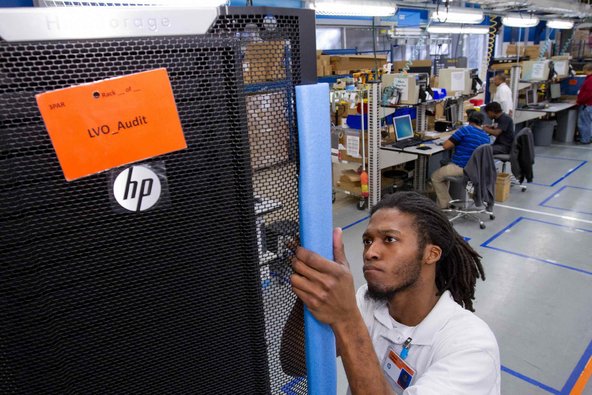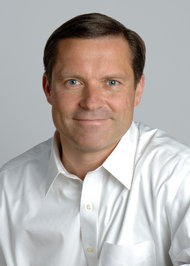
For what probably amounts to a relatively small amount of money, Hewlett-Packard just made a big bet.
Thursday afternoon, HP said it had entered an agreement to acquire a company called Eucalyptus, which makes open source software for managing cloud computing systems. The chief executive of Eucalyptus, Marten Mickos, will become general manager of HP’s cloud computing business, reporting directly to Meg Whitman, HP’s chief executive.
The price was not disclosed, but it probably was not significant when compared with HP’s $112 billion in annual revenue. The price tag matters less than what the deal says about HP’s intention to build products that in many ways will undermine its existing revenue in several product areas.
HP wants to sell cloud systems to private companies, with options for these clouds to interact with Amazon Web Services, along with other so-called public clouds, a term for cloud systems available from big providers for rent by companies and individuals. HP is also offering its own cloud system, which it can operate on behalf of private companies with more exclusivity than AWS can offer.
To make all that work, the HP cloud systems will rely on lots of software besides Eucalyptus, including products that proxy on top of cheap computer servers the kind of data storage and networking that HP also sells. In addition, the tech giant will have to rely less on revenue from selling hardware, and more on software and service contracts.

“Success will be a tight alignment of many parts of the company,” said Mr. Mickos. “We have to figure out how to work together.
Eucalyptus, which came out of an open source project at the University of California, Santa Barbara, had several thousand users of the free software, but far fewer paying customers. The company’s main selling point was that its software was interoperable with AWS.
Putting services and hardware together in new ways is part of “the hard hill we are in the process of climbing,” said Martin Fink, HP’s chief technology officer and the head of HP Labs, where much of the development is taking place. ”Is there uncertainty? There is always uncertainty.” He added that Ms. Whitman has determined that this is where customers are going, so HP needs to adjust its business accordingly.
If HP wants to show determination to change with this deal, Mr. Mickos is a particularly telling executive to put in charge of the cloud business.
He previously sold MySQL, an open source database company, to Sun Microsystems for $1 billion in 2008. Besides making enough money personally to be able to pick where (and if) he works, Mr. Mickos got an up-close view of a company that couldn’t change with the times. Sun was purchased by Oracle for $7.4 billion in 2009.
He is also on the board of Nokia, which last year was forced to sell its once-mighty phone business to Microsoft.
While MySQL helped make Sun attractive to Oracle (it may be why Sun bought the company), Mr. Mickos says his experience taught him how to judge corporate commitment. “All big changes must start from the top,” he said. “At the highest level Sun didn’t take the decisions it needed to. I see a board at HP that takes very seriously the change.” He added, “they have the patience and determination for something that can take years.”
The deal is one of several that signal changing times in the computer business. Last year Dell went private at a cost of $25 billion, in part to retool itself for cloud computing. Last January, IBM sold its low-end server business to Lenovo, since it couldn’t compete profitably enough in the commodity business of servers for data centers.
Taiwan’s Quanta, another commodity server maker, now ships pre-configured racks of servers and software to companies like Facebook, at times supplying 80 percent of that company’s servers. In April, HP and Foxconn, another bulk assembly company, announced a joint venture to produce cloud-optimized servers a deal that combined perhaps some loss of autonomy for HP with an impressive pragmatism about the current market.
